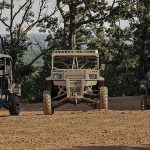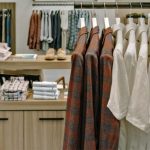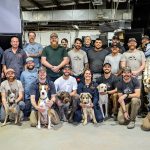The Federal Trade Commission has announced a settlement with a company that allegedly falsely claimed its rayon products are made of bamboo fiber, retain bamboo’s antimicrobial properties, and are biodegradable.
Under the settlement, the company has agreed that it will not make any future bamboo claims unless they are true and backed by reliable evidence, and that it will no longer claim that the clothing and bath products it sells are made of bamboo fiber when they actually are made of rayon processed from bamboo plants.
According to the Commission’s complaint, issued in August 2009, The M Group, Inc., d/b/a Bamboosa, and its principals falsely claimed that the company’s products are “100% bamboo fiber,” when they are composed of rayon. Rayon is a man-made fiber created from the cellulose found in plants and trees and dissolved with a harsh chemical that releases hazardous air pollution. Any plant or tree could be used as the cellulose source including bamboo but the fiber that is created is rayon.
The complaint also charged Bamboosa with making a number of other deceptive “green” claims. Bamboosa claimed that its products retain bamboo’s antimicrobial properties. However, even if the rayon used in Bamboosa’s clothing and textile products is manufactured using bamboo as the cellulose source, the FTC contends, rayon does not retain any natural antimicrobial properties of the bamboo plant. The rayon manufacturing process eliminates any of these natural bamboo properties.
Bamboosa also allegedly made unqualified claims that its products are biodegradable. The Commission charged that the company’s rayon products are not biodegradable because they will not break down in a reasonably short time after customary disposal. Most clothing and textiles are disposed of either by recycling or in a landfill, where such biodegradation does not occur.
Finally, the complaint charged Bamboosa with violating the Textile Fiber Products Identification Act (Textile Act) and the FTC’s Textile Rules by falsely labeling and advertising its clothing and textile products as bamboo, when they should be labeled and advertised as rayon.
The proposed settlement bars Bamboosa from making any false, misleading, or unsubstantiated claims that any textile product is made of bamboo or bamboo fiber, is antimicrobial or retains the antimicrobial properties of the product from which it is made, or is biodegradable. The settlement also bars Bamboosa from making any claims about the benefits, performance, or efficacy of any clothing or textile product it sells, unless the claims are true, not misleading, and substantiated by reliable evidence. The proposed order also requires Bamboosa to comply with the Textile Act and FTC’s Textile Rules.
Three other companies Sami Designs, LLC, doing business as (d/b/a) Jonäno; CSE, Inc., d/b/a Mad Mod; and Pure Bamboo, LLC settled similar FTC complaints in August 2009, agreeing to stop making the false claims and to abide by the Textile Act and the FTC’s Textile Rules.














